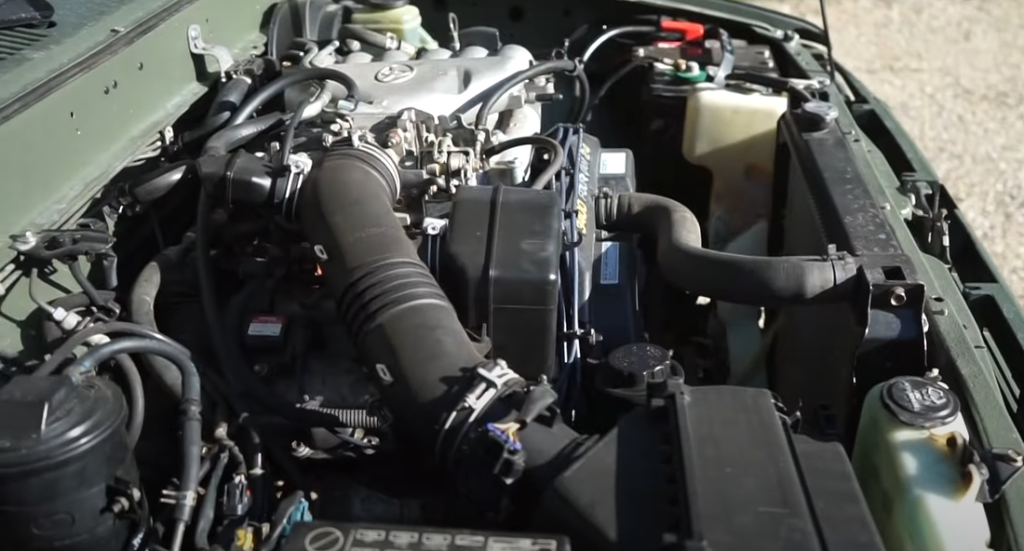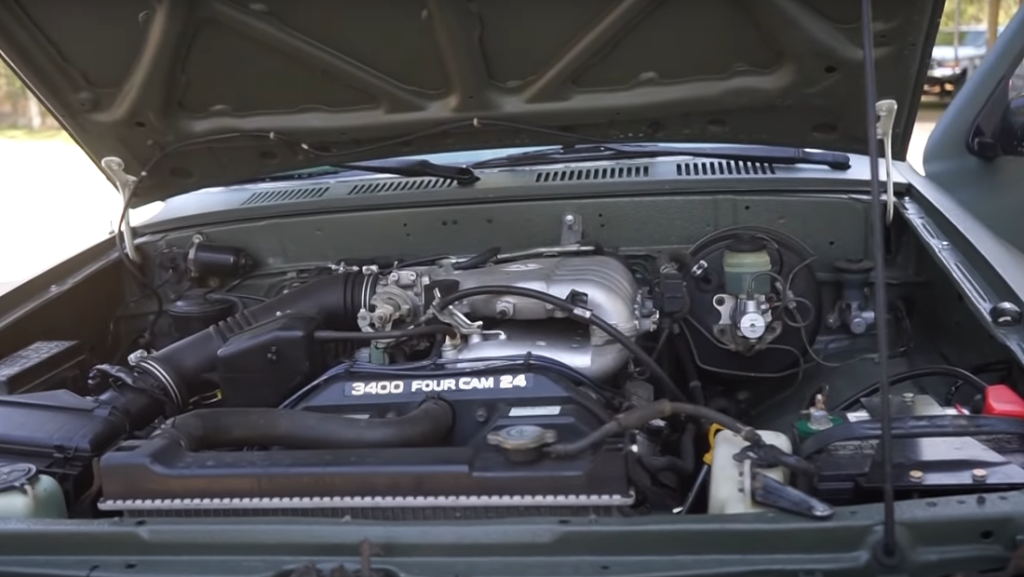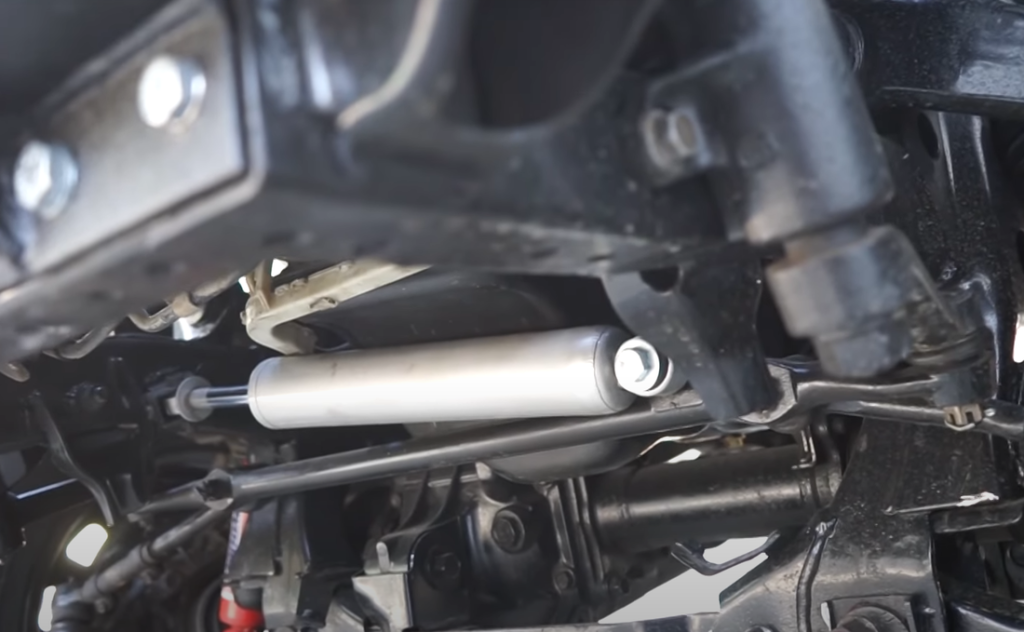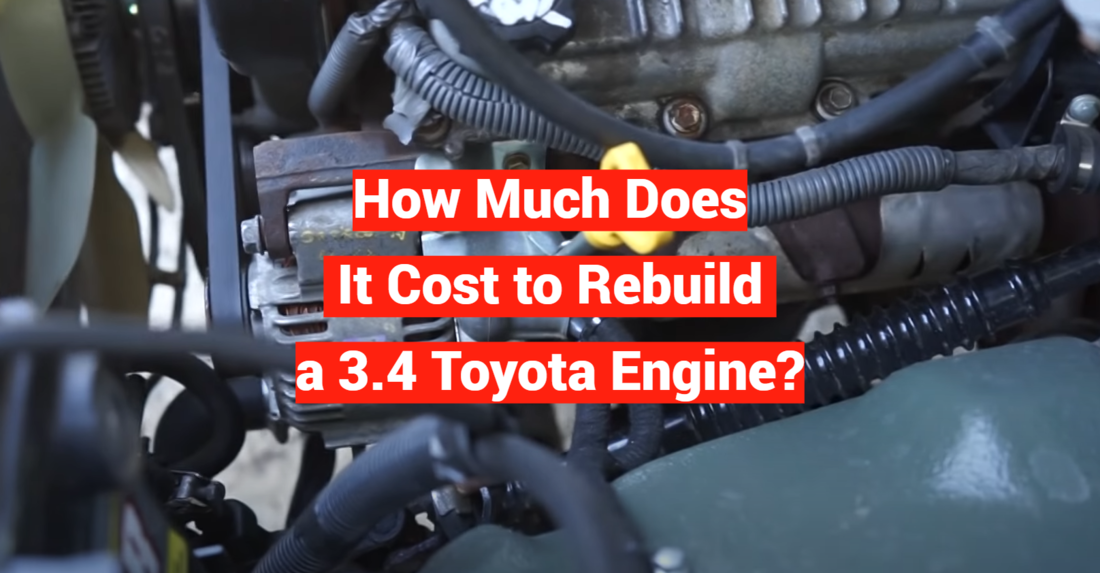Buckle up, car enthusiasts, because this article is about to take you on a thrilling ride through the ins and outs of rebuilding a 3.4 Toyota engine! Whether you’re a passionate DIYer or simply curious about the inner workings of your beloved ride, this post is here to satisfy your curiosity and provide you with the essential knowledge you need. Today, the article will not only delve into the intricacies of this impressive engine but also answer the burning question on every car owner’s mind: just how much does it cost to rebuild a 3.4 Toyota engine? So, grab your toolbox and get ready to rev your intellectual engines as we dive into this fascinating subject!
How long does a 3.4 L V6 Toyota engine last?
As with any engine, the longevity of a 3.4 Toyota engine depends on various factors such as maintenance habits, driving conditions, and overall care. However, on average, a well-maintained 3.4 V6 engine can last anywhere from 200,000 to 300,000 miles.
To ensure your engine reaches its full potential lifespan, it is crucial to follow the manufacturer’s recommended maintenance schedule. This includes regular oil changes, fluid top-ups, checking for any signs of wear and tear, and thorough inspections by a qualified mechanic. Additionally, implementing good driving habits, such as smooth acceleration and timely braking, can also positively impact the lifespan of your engine.

But don’t worry if your 3.4 Toyota engine has already surpassed the 200,000-mile mark. With proper care and attention, you can still rebuild your engine and continue to enjoy its power and performance for many more miles to come. Regular maintenance, occasional tune-ups, and addressing any issues promptly can help extend the life of your engine, ensuring many more reliable miles on the road [1].
How much does it cost to rebuild a 3.4 Toyota engine?
The cost of rebuilding a 3.4 Toyota engine can vary greatly depending on the extent of the damage and the specific parts needed for replacement. On average, however, you can expect to spend anywhere from $1,500 to $4,000 for a basic rebuild. This typically includes the cost of parts and labor.
If your engine requires more extensive work such as replacing major components or fixing internal damage, the cost can increase significantly. In some cases, it may be more cost-effective to replace the entire engine rather than rebuilding it. It is essential to consult with a qualified mechanic to determine the best course of action for your specific situation.
While the cost may seem daunting, it is important to keep in mind that rebuilding your engine can extend its lifespan and save you from having to purchase a new car. Additionally, you can potentially recoup some of the cost by selling your old parts or using them as trade-ins for new ones. When considering the long-term benefits, such as improved performance and reliability, investing in a thorough engine rebuild can be a smart decision for the longevity of your vehicle.

Common car engine problems
Poor lubrication
One of the most common issues that can lead to engine failure is poor lubrication. This occurs when there isn’t enough oil in the engine or the existing oil is contaminated with debris, causing friction and wear on critical components. Over time, this can lead to irreversible damage and costly repairs.
To prevent this issue, it is essential to regularly change your engine oil and filter according to the manufacturer’s recommendations. Additionally, using high-quality oil and ensuring the proper levels are maintained can help keep your engine properly lubricated. By following these maintenance practices, you can extend the longevity of your engine and avoid potential breakdowns on the road.
Overheating
Another common problem that many car owners encounter is engine overheating, which can occur due to a variety of reasons, such as a malfunctioning cooling system, low coolant levels, or a faulty thermostat. When an engine overheats, it can lead to serious damage, including warped cylinder heads and blown head gaskets, if the issue is not promptly addressed.
To avoid the detrimental effects of overheating, it is crucial to monitor your engine’s temperature gauge closely and take immediate action to resolve any overheating issues. Additionally, regularly checking and topping up coolant levels can play a significant role in preventing overheating and maintaining the health of your vehicle’s engine over the long term.
Timing belt failure
For engines equipped with timing belts, a common and potentially catastrophic issue that can lead to engine failure is a broken timing belt. The timing belt plays a critical role in synchronizing the rotation of the camshaft and crankshaft, ensuring that the engine functions properly. When a timing belt breaks, it can result in significant damage to the engine’s internal components, leading to costly repairs or even requiring engine replacement.
To prevent this issue, it is essential to proactively replace your timing belt in accordance with the manufacturer’s recommended schedule. Ignoring or postponing this crucial maintenance task can have severe consequences and may lead to unexpected and expensive repairs.

Failing oil pump
The oil pump, a vital component of an engine, plays a crucial role in maintaining proper lubrication by ensuring the circulation of oil. When this component fails, it can result in inadequate lubrication, potentially leading to damage of critical engine parts.
To avoid such issues, regular maintenance and thorough inspections are essential. Keep an eye out for warning signs of a failing oil pump, such as low oil pressure and unusual noises emanating from the engine. Taking prompt action in response to these indicators can help prevent costly damage to the engine in the long run.
Oil deposits and debris buildup
Over time, oil deposits and debris can gradually accumulate inside the engine, forming blockages and impeding proper lubrication. As a result, this buildup can lead to various issues, including diminished performance, decreased fuel efficiency, and potential damage to internal components, all of which can significantly impact the longevity of your car’s engine.
To avoid these problems, it’s imperative to prioritize regular oil changes using high-quality oil filters. Additionally, incorporating periodic deep engine cleanings every few years can effectively eliminate any accumulated deposits, ensuring optimal engine performance and longevity. Taking proactive measures to address these common issues is essential for maintaining the health and longevity of your car’s engine in the long run.
Inadequate fuel and air compression
Proper fuel and air compression are essential for an engine to run efficiently. If the fuel and air mixture is not compressed enough, it can lead to poor performance, reduced fuel efficiency, and potential damage.
To avoid this issue, regular tune-ups and inspections of your engine’s fuel and air systems are crucial. This includes replacing spark plugs, cleaning or replacing air filters, and ensuring proper fuel pressure. Addressing any issues with compression can help keep your engine running smoothly.
Overall, taking care of these common car engine problems through regular maintenance and prompt attention to any warning signs can help extend the life of your engine. It is essential to consult with a qualified mechanic for proper diagnosis and repairs to ensure your vehicle’s continued performance and reliability on the road.
Leaking engine coolant
Engine coolant, also known as antifreeze, plays a crucial role in maintaining the engine’s temperature and preventing overheating. A properly functioning coolant system is essential for the overall health and performance of the engine.

Regularly checking for any signs of leaks or low coolant levels is vital in preventing potential engine damage. If you notice anything out of the ordinary, such as puddles of coolant under the vehicle or the coolant level dropping below the recommended level, it’s important to have your vehicle inspected by a qualified mechanic promptly.
In addition to regular checks, it’s recommended to adhere to the manufacturer’s guidelines for coolant replacement. This proactive approach can help prevent leaks and ensure that your engine continues to operate smoothly. By staying vigilant and addressing any coolant-related issues promptly, you can maintain the optimal performance and longevity of your vehicle’s engine.
Blocked engine radiators
The radiator, a vital component of the vehicle’s cooling system, plays a crucial role in maintaining the engine’s operating temperature. It achieves this by transferring heat from the coolant to the surrounding air. Over time, debris such as leaves, dust, and small particles from the road may accumulate on the radiator’s surface, impeding its ability to effectively cool the engine. This buildup can lead to reduced cooling efficiency and potential overheating issues, which could compromise the engine’s performance and longevity.
To mitigate this issue, it is important to conduct regular inspections and thorough cleaning of the engine radiator to remove any accumulated debris. By doing so, you can ensure that your engine remains at a safe operating temperature, minimizing the risk of potential overheating problems and extending the longevity of your vehicle’s cooling system. Regular maintenance of the radiator not only enhances the overall performance of your vehicle but also contributes to its long-term reliability and durability.
Prolonged engine detonation
Engine detonation, also referred to as engine knocking or pinging, is a harmful phenomenon that occurs when the air-fuel mixture in the engine’s cylinders ignites prematurely, leading to detrimental effects on the engine’s performance and longevity. This issue can arise due to various factors, including the use of low-quality fuel, incorrect ignition timing, or the accumulation of carbon deposits on spark plugs, which can all contribute to the early ignition process within the engine.
To effectively prevent and address this issue, it is crucial to prioritize the use of high-quality fuel and seek professional advice from a mechanic if any signs of engine detonation, such as unusual noises or reduced performance, are detected. Additionally, consistent maintenance and timely replacement of spark plugs can play a pivotal role in minimizing the risk of engine detonation, ensuring the optimal functioning of the engine over time.

Damaged oxygen sensors
Oxygen sensors are responsible for measuring the oxygen levels in the exhaust and providing data to the engine’s computer for proper air-fuel ratio adjustments. If these sensors become damaged or fail, it can lead to decreased fuel efficiency and potential damage to other engine components.
To prevent this issue, regularly inspecting and replacing damaged oxygen sensors is crucial. It is also important to address any underlying issues, such as a malfunctioning catalytic converter or exhaust leak, that may be causing damage to the sensors. By taking care of these issues promptly, you can ensure your engine continues to run efficiently and avoid costly repairs in the future.
Aged spark plugs and wires
Spark plugs and ignition wires play a critical role in the engine’s combustion process by providing a spark to ignite the air-fuel mixture. Over time, these components can wear out or become damaged, leading to poor engine performance and potential damage.
To avoid this problem, it is essential to regularly inspect and replace aged spark plugs and wires as recommended by your vehicle’s manufacturer. This can help ensure proper combustion and maintain the overall health of your engine.
Regularly maintaining and addressing any issues with these common car engine problems is crucial for the longevity and reliability of your vehicle. By staying on top of maintenance and prompt repairs, you can avoid costly damage and keep your engine running smoothly for miles to come [2].
How to maintain a Toyota engine?
To properly maintain a Toyota engine, it is important to follow the recommended maintenance schedule outlined in the vehicle’s owner manual. This typically includes regular oil changes, tire rotations, and inspections of various components such as brakes, filters, and fluids.

Additionally, here are some tips for maintaining your Toyota engine:
- Change the oil and filter regularly: It’s important to maintain the engine’s health by regularly changing the oil and oil filter. This helps to keep the engine properly lubricated and prevents the build-up of debris that can potentially damage vital engine components over time.
- Use recommended grade of fuel: Ensuring that you use the recommended grade of fuel for your Toyota engine is crucial for optimizing its performance and preventing potential issues such as detonation or other fuel-related problems. This simple step can go a long way in preserving the health and efficiency of your engine.
- Keep an eye on coolant levels: Regularly monitoring your coolant levels, especially during extreme temperatures, is essential for preventing engine overheating. Topping up the coolant as needed can help maintain the engine’s temperature within the optimal range, ensuring smooth and reliable performance.
- Inspect and replace spark plugs: As previously mentioned, maintaining your spark plugs in good condition is crucial for ensuring proper combustion and smooth engine operation. Regular inspection and timely replacement of spark plugs can contribute to the overall health and efficiency of your engine.
- Address warning signs promptly: It’s important to pay attention to any warning lights or unusual noises coming from your vehicle. Promptly addressing these signs by having the vehicle inspected by a qualified mechanic can help identify and resolve potential issues before they escalate, ultimately contributing to the longevity and reliability of your Toyota.
By following these tips and staying on top of recommended maintenance, you can help ensure the longevity and performance of your Toyota engine. Additionally, consulting with a qualified mechanic for any major repairs or issues is crucial for maintaining the safety and reliability of your vehicle on the road [3].
FAQ
Is it cheaper to rebuild or replace an engine?
The answer to this question depends on the specific circumstances of your vehicle and the extent of damage to the engine. Factors such as the age and mileage of the vehicle, the availability of replacement parts, and the cost of labor also play a crucial role in determining the most suitable course of action. In some cases, rebuilding the engine may be a more cost-effective option, especially if the damage is limited to specific components. On the other hand, if the damage is extensive or if the engine has reached the end of its useful life, replacing it entirely may be necessary. It is always best to consult with a trusted mechanic who can provide an accurate assessment and personalized recommendation based on your particular situation.
How often should I have my engine inspected?
It is highly recommended to have your engine inspected at least once a year, or every 10,000 miles, whichever comes first. Regular inspections help to identify potential issues early on, ensuring optimal performance and preventing costly repairs down the line. However, if you notice any warning signs such as strange noises, unusual smells, or performance issues, it’s crucial to have your engine inspected promptly by a qualified mechanic. Taking proactive steps to address any concerns can help maintain the longevity and efficiency of your vehicle.
What type of fuel should I use for my Toyota engine?
Consult your vehicle’s owner manual or consult with a qualified mechanic to determine the recommended grade of fuel for your Toyota engine. Using the right type of fuel is crucial for ensuring optimal performance and preventing potential issues from arising. Additionally, avoid using lower-grade fuels than what is recommended, as this can cause damage to the engine over time. By following these recommendations and staying on top of regular maintenance, you can help maintain the health and efficiency of your Toyota engine for years to come. Overall, proper maintenance and prompt addressing of any issues are key to preserving the longevity and reliability of your vehicle’s engine.
Is the Toyota 3.4 V6 a good engine?
The Toyota 3.4 V6 engine is generally considered to be a reliable and durable engine. It has been used in various Toyota vehicles for over two decades, with many owners reporting minimal issues and long-lasting performance. However, as with any engine, regular maintenance and prompt addressing of any issues are crucial for ensuring its longevity and reliability. Following the recommended maintenance schedule and being proactive in addressing any concerns can help keep your Toyota 3.4 V6 engine running smoothly for miles to come.
When did Toyota stop using the 3.4 L engine?
Toyota stopped using the 3.4 L engine in their vehicles in 2004. It was replaced by the 4.0 L V6 engine, which remains in use today in various Toyota models such as the Tacoma, Tundra, and 4Runner. However, many Toyota enthusiasts still praise the reliability and performance of the discontinued 3.4 L engine. With proper maintenance and care, it can still provide reliable performance for many years. If you own a Toyota with the 3.4 L engine, be sure to follow recommended maintenance guidelines and promptly address any issues to ensure its longevity.
Conclusion Paragraph
So, if you want to rebuild a 3.4 Toyota Engine, you should know that it can cost you around $1,000 to $2,000 in parts and labor. However, this cost may vary depending on the extent of damage and availability of replacement parts. It’s always best to consult with a trusted mechanic before making any decisions regarding engine repairs or replacements. Regular maintenance, prompt addressing of issues, and using the recommended fuel grade are crucial for maintaining the longevity and reliability of your Toyota engine. By following these tips and guidelines, you can help ensure smooth and efficient performance from your vehicle for years to come.
How much did it cost to rebuild my engine? Lessons learned.
References
- https://cararac.com/blog/toyota-3-4-l-engine-5-vz-fe-problems-durability.html
- https://www.marksautoil.com/10-common-car-engine-problems-and-what-causes-them/
- https://www.worldtoyota.com/toyota-maintenance-tips/

